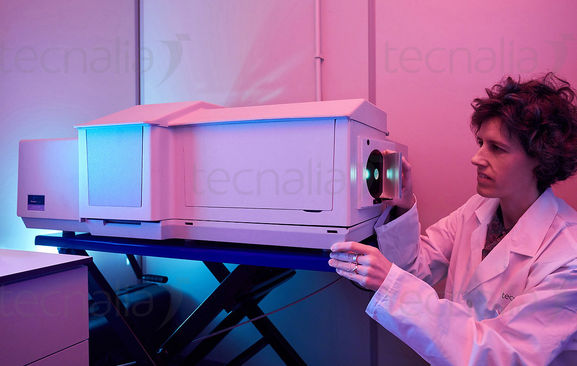The SRI makes it possible for finishes to be categorised based on their capacity to reduce the urban heat island effect
Our Optics Laboratory has been accredited to the ASTM E-1980-11 standard by ENAC to calculate the Solar Reflectance Index (SRI).
This accreditation is the result of a clear commitment to remain at the forefront of technical solutions in optical characterisation, and to provide such service for our customers. As a consequence, we strive to broaden the scope of accreditation year after year to include the new tests required in the industry.
These tests, among many others, include calculating the Solar Reflectance Index SRI according to ASTM E1980-11, a service which is being increasingly sought after due to the role it plays in the LEED building certification. The SRI value makes it possible for finishes to be categorised based on their capacity to reduce the urban heat island effect.
By calculating the SRI, manufacturers of building products are able improve the properties of the finishes, develop new products that comply with the requirements set out in the certification, and consequently, better position their products on the market.
It also helps other agents such as architects, builders, and building owners and managers to choose suitable materials and finishes that contribute to reducing surface temperatures, thereby reducing the energy consumption of the buildings.
THE IMPORTANCE OF HAVING A TEST REPORT FROM AN ACCREDITED LABORATORY
Through a system of international agreements, the results issued by a laboratory accredited by ENAC are recognised in over 70 countries around the world. This mutual recognition means that the results are more readily accepted in foreign markets, and it helps to reduce the costs and eliminates the need to repeat the tests in another country.



WHO IS THIS SRI CALCULATION SERVICE INTENDED FOR?
This service is particularly intended for manufacturers of:
- Paints and waterproofing agents
- Finishes for surfacing and roofs such as ceramics, concrete, composites, sandwich panels, plastic roofs, etc.
And architects, builders, and building owners and managers.
Contact: oihana.plazaola@tecnalia.com

